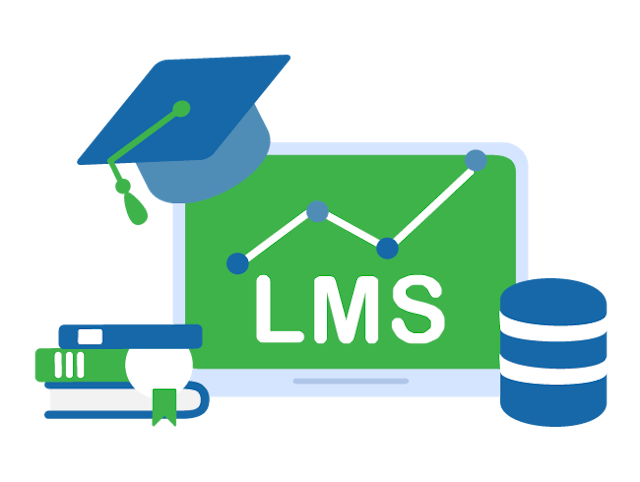Learning Management System-LMS
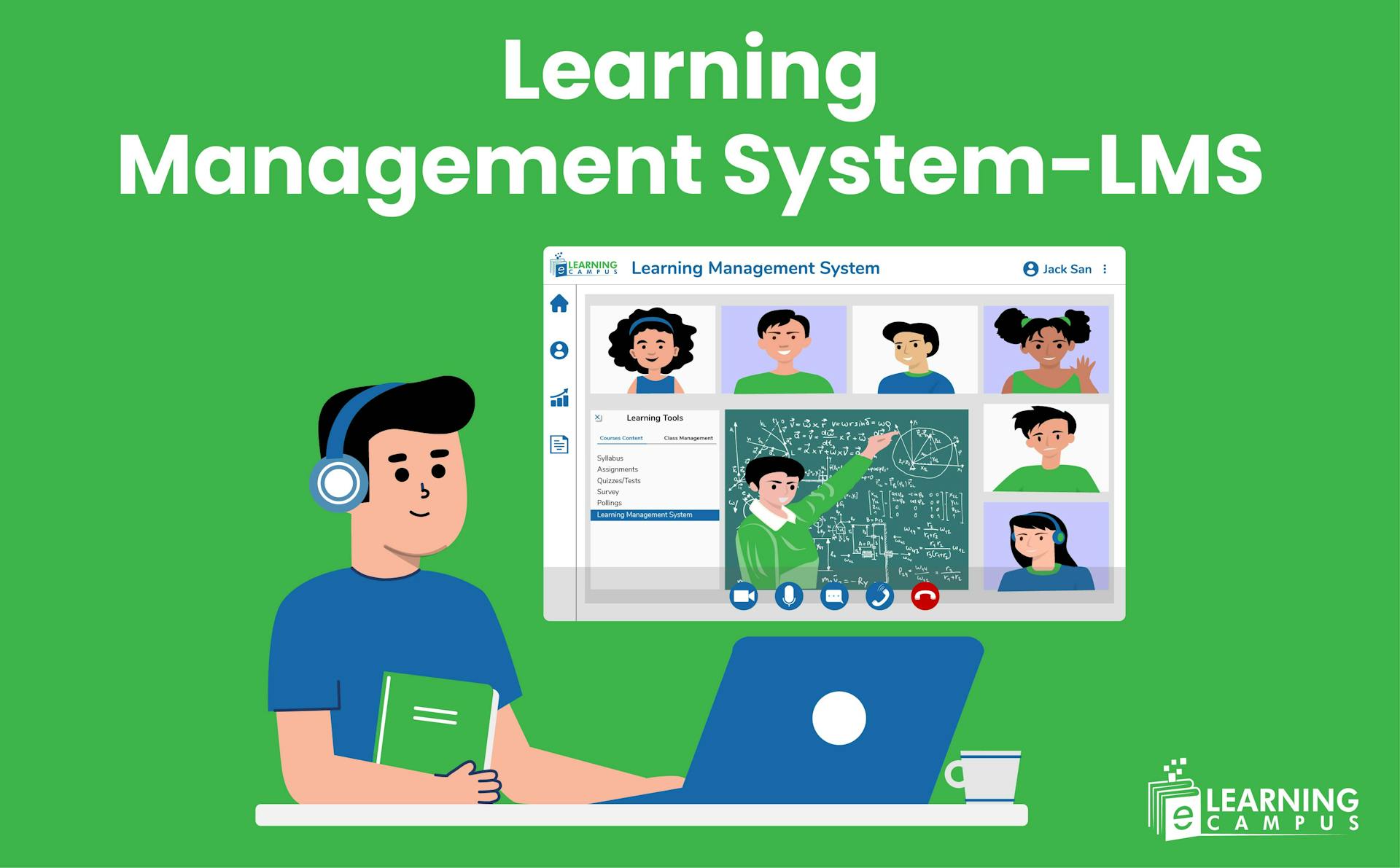
A Learning Management System (LMS) is a software used for online learning purposes. It helps in the creation, management, delivery, and tracking of the online educational process. LMS makes the learning process organized and effective for both learners and instructors.
What is the LMS (Learning Management System) Used for?
The learning management system is widely used in educational, business, and training institutes. The primary use of LMS is to manage, deliver, and track learning materials that are offered online.
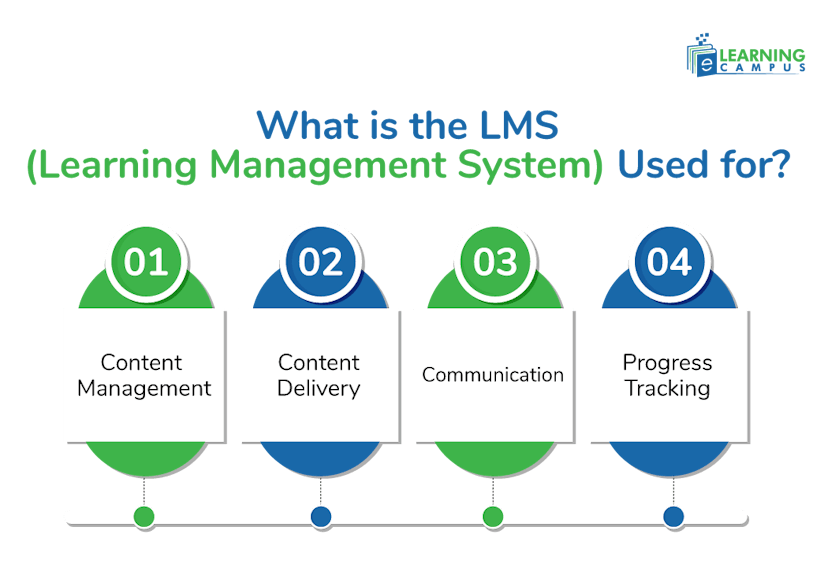
Content Management
LMSs are used for content management in various domains. It acts as the database for the creation, organization, and storage of learning materials. The content may include text, audio, and video. It organizes all learning material in one place.
Content Delivery
The learning management systems streamline the delivery of various types of content online. The instructor updates the timeline of activities, and the learners access them through dashboards.
Communication
Online learning management systems offer features that enable students and teachers to interact with each other.
Progress Tracking
Learning management platforms have an integrated tracking mechanism that tracks the learning progress, skill development, qualifications, and attendance. It helps in a smooth progress management.
Who Uses LMS
Learning Management Systems (LMS) are used by many organizations and individuals to organize and deliver online educational and training programs. These are important for educational institutes in the digital learning landscape.
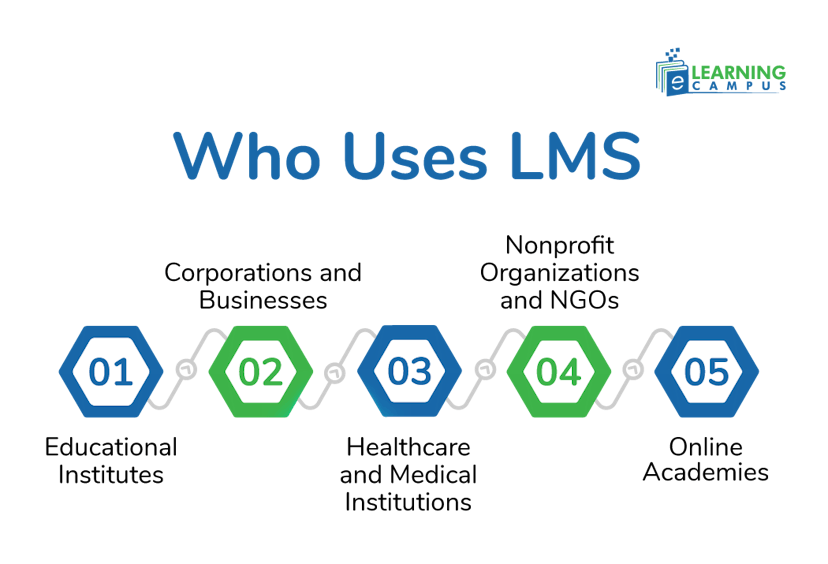
Educational Institutes
Learning management softwares have become an integral part of educational institutions. These platforms provide structured online learning programs for both teachers and students.
LMSes support digital classrooms, an engaging learning environment, and real-time communication between students and teachers. Educational institutes may have their own management system, or they may use third-party software.
They enable educators to share course content, administer assessments, and track student progress.
The reasons for usage include;
- Centralized platform for lessons, quizzes, and grades.
- Enhances student engagement with digital tools and media.
- Supports remote, hybrid, and in-class learning environments.
Corporations and Businesses
Corporate offices and business companies use LMS platforms to train employees. Its integration with HR departments standardizes onboarding and enhances team efficiency. The LMS systems help businesses deliver consistent and scalable training.
- organized onboarding process and role-specific training.
- Ensures employees meet industry compliance standards.
- Provides detailed analytics on employee performance.
Healthcare and Medical Institutions
Hospitals, clinics, and medical institutions use LMS software to train professionals on safety protocols, technologies, and updated procedures. They use it in the regular training of their staff. The benefits of using LMS for healthcare include;
- It keeps medical staff up to date on best practices
- Manages certifications and ongoing education
- Offers realistic and case-based learning
Nonprofit Organizations and NGOs
Nonprofit organizations and NGOs use learning management platforms to train staff and volunteers. They educate communities and spread awareness about causes. The use of LMSes scales their impact and ensures consistent messaging across multiple locations.
Online Academies
Independent professionals and online tutoring academies use learning management software to connect teachers and students globally. With user-friendly tools, they can create engaging online courses and lessons, track student progress, and boost students' creativity.
It helps both teachers and students by;
- Creating structured and professional learning experiences
- Enables creators to monetize their expertise
- Offering flexibility for both online tutors and learners
Types of Learning Management Systems (LMS)
There are several types of LMS based on their deployment, functionality, and intended use. They are built on different organizational or individual needs. Below are the main types with their features.
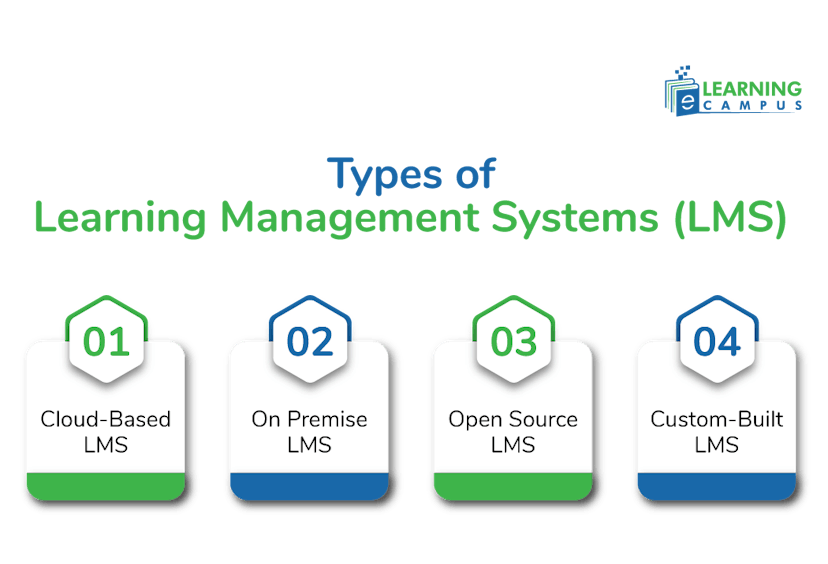
Cloud-Based LMS
Cloud-based LMSs are hosted on remote servers (provider) and managed by third-party providers. It is accessed through the internet. They are also known as SaaS (Software-as-a-Service) LMS.
Features
- No installation required
- Accessible from anywhere with an internet connection
- Automatic updates and maintenance
- Multi-device compatibility (desktop, mobile, tablets)
- Easy integration with third-party tools (Zoom, Google Workspace, etc.)
On Premise LMS
On-premis or installed LMS is installed and hosted on the server of an organization. Organizations can have full control over the system and data. It is maintained and upgraded by the organization itself.
Features
- High data security and customization options
- Suitable for large organizations with strong IT infrastructure
- Requires IT support for installation and maintenance
- Limited accessibility compared to cloud-based systems
Open Source LMS
An open-source LMS provides the source code for users to modify the system according to need and functionality. Once installed, it can be changed and modified.
Features
- Highly customizable
- Large community support
- No licensing fees
- Requires technical expertise for setup and maintenance
- Ideal for institutions that need tailored learning environments
Custom-Built LMS
A custom LMS is developed and modified by educational institutions to meet their organizational needs.
Features
- Fully tailored user interface and workflows
- Integration with legacy systems
- High initial cost, but a perfect fit for niche requirements
Long-term support and scalability depend on the development team
Conclusion
A Learning Management System (LMS) is a software application used to administer, document, track, report, and deliver online courses or training programs. It serves as a centralized platform for managing all aspects of the learning process online.
Learn Online Through LMS in eLearning Campus
Are you looking to take smooth and seamless online classes? Learn online with us. We use the LMS system to provide structured classes of every subject globally. An easy-to-use software makes able to take classes easily.
